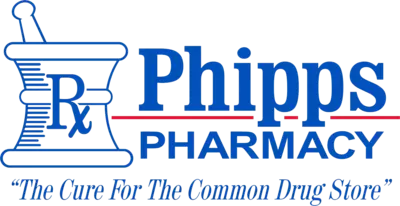Accidents and illnesses happen, usually without warning. That’s why it’s important to be as prepared as possible. You should keep medical supplies on hand at home to help you handle colds and flu, allergies, upset stomach, and minor injuries. This can save you a late-night trip to the store. Here’s a list of essential medical supplies you should always have at home.
1. Thermometer

You should always have a working thermometer in your home’s first-aid kit. A thermometer can show if you or a loved one has a higher-than-normal body temperature, which can indicate illness or infection. Keeping a thermometer on hand in an easy-to-access place allows you to check yourself and your family members for a fever to determine what next steps you should take. A high fever may require emergency medical care, while low-grade fevers can often be treated at home.
2. Bandages and Wound Care
Accidents are bound to happen, and the people in your home will likely experience cuts, scrapes, and burns at some point. You should have medical supplies on hand to clean and dress these injuries. Wound care essentials to keep in your home’s first-aid kit include:
- Various sizes of adhesive bandages
- Roller bandages
- Gauze pads
- Adhesive bandage tape
- Butterfly closures
- Latex gloves
- Hydrogen peroxide
- Antiseptic wipes
- Aloe vera gel
3. Tweezers

Tweezers can help remove stubborn splinters or shards of glass stuck in the skin. These foreign objects can be uncomfortable and could also cause an infection if left in the skin too long. Keep a pair of tweezers in your home’s first-aid kit to know exactly where to find them when you need them. It’s a good idea to have separate tweezers dedicated to first aid that are not used for other household tasks or cosmetics.
4. Over-the-Counter Medications
Whether you’re experiencing a headache, muscle aches, upset stomach, coughing, itching, or inflammation, you can take over-the-counter medications to help manage your symptoms. Some medical supplies you should always have on hand include over-the-counter medications that can treat various symptoms of colds, flu, and allergies as well as stomach issues and pain relief. Over-the-counter medications to always have at home include:
- Ibuprofen
- Acetaminophen
- Antihistamines
- Eye drops
- Cold medicine
- Throat lozenges
- Laxatives
- Antacids
- Bismuth tablets
- Loperamide
- Calamine lotion
- Hydrocortisone cream
5. Prescription Medications

Whether you take prescription medications daily or on an as-needed basis, you should always have enough on hand to last you through an emergency situation such as a flood, snowstorm, or other disaster that may prevent you from getting to the pharmacy. If you have a severe allergy, make sure you keep an auto-injector of epinephrine at home in case of an allergic reaction. You should keep a list of your prescription medications with dosing instructions to ensure proper use.
6. Heat and Cold Packs
If you or a family member trips, falls or bumps your head, you want to be prepared to reduce swelling and pain. You should keep ice packs in your freezer as well as instant heat and cold packs in your first-aid kit in case the power goes out. These packs can be stored at room temperature, and you activate them by squeezing them. This mixes the solution inside, which triggers a cooling or warming reaction that can be beneficial for relieving pain and inflammation.
Stock Up on Essential Medical Supplies at Phipps Pharmacy
These are some of the most important medical supplies to have at home in case of unexpected illness or injury. If you need to stock up on any medications or other supplies, stop by a Phipps Pharmacy location. We have the supplies you need, and our experienced pharmacy team can recommend the best products for you and your family.

